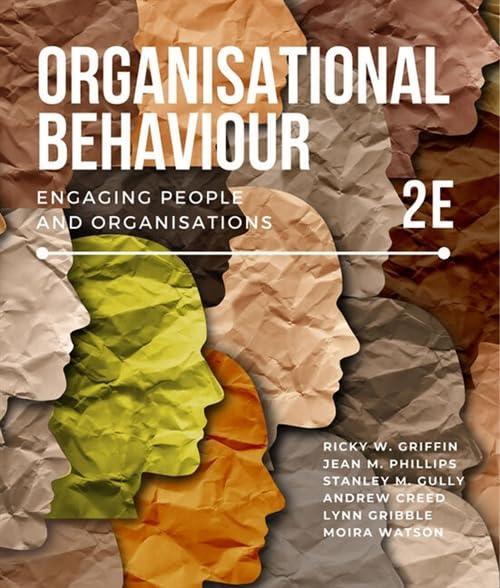In the latter half of the 20th and early 21st centuries, with the birth of the internet
Question:
In the latter half of the 20th and early 21st centuries, with the birth of the internet and as participation and consumption of social media grew, bigger was deemed as being better. Assertive and arrogant personalities began to dominate on both reality and scripted TV shows, on Snapchat, Facebook, Twitter, Instagram, YouTube and TikTok social media platforms, in politics, as well as in the workplace. Narcissism, which was once seen as a negative personality trait that people attempted to avoid or at the very least minimise, became something to embrace and emulate. It was also often rewarded, whether it be through likes, comments and subscribers on social media, being elected as prime minister or president of a country, or being the preferred candidate for a job or leadership role. Greed was seen as good and being humble as a sign of weakness. Is there room for a humble leader in modern workplaces? In fact, many recent studies point to having a humble leader or CEO as being positive for an organisation.100 One of the traits of a humble leader is that they are more self-aware of their strengths and their limitations. They are not overconfident in their abilities and so do not end up taking undue risks, rushing untested products to market or overpaying for acquisitions. Investors in companies that have humble CEOs tend to benefit as financial analysts often underestimate the earnings potential of these types of companies. In turn this leads to ‘artificially low earnings from the analysts, which the firms can then more easily meet or beat’.101 Apart from demonstrating self-awareness, humble leaders ‘emphasise leadership as a shared activity and actively seek advice from others’.102 They are happy to ask for help when they need it and will ‘sacrifice their own interests for the greater good’.103 These traits are demonstrated through the former Managing Director of Sydney Water, Kevin Young.104 Sydney Water services more than five million customers and employs around 2500 people. Having held the role for eight years, Young understands the importance of humility and authenticity as well as having ownership of your future. Young is known as a manager who achieves things through other people, believing that ‘CEOs are humble, but with fierce resolve’.
Questions
Mainstream
1. Based on the information in the case study, why would a humble CEO be a better fit for an organisation than an arrogant CEO?
2. Why would an investor prefer to invest in a company with a humble CEO over the alternative?
Critical
1. Overconfidence seems to be a very common trait in CEOs. If you were a CEO, what would you do in order to remain ‘humble, but with fierce resolve’?
2. How do you consume and engage with friends, businesses and celebrities on social media, and how has this changed over time? What kinds of personalities on social media (narcissistic, humble or a mixture) do you tend to gravitate towards? Explain your response.
Step by Step Answer:

Organisational Behaviour Engaging People And Organisations
ISBN: 272389
2nd Edition
Authors: Ricky W. Griffin, Jean M. Phillips, Stanley M. Gully, Andrew Creed, Lynn Gribble, Moira Watson





